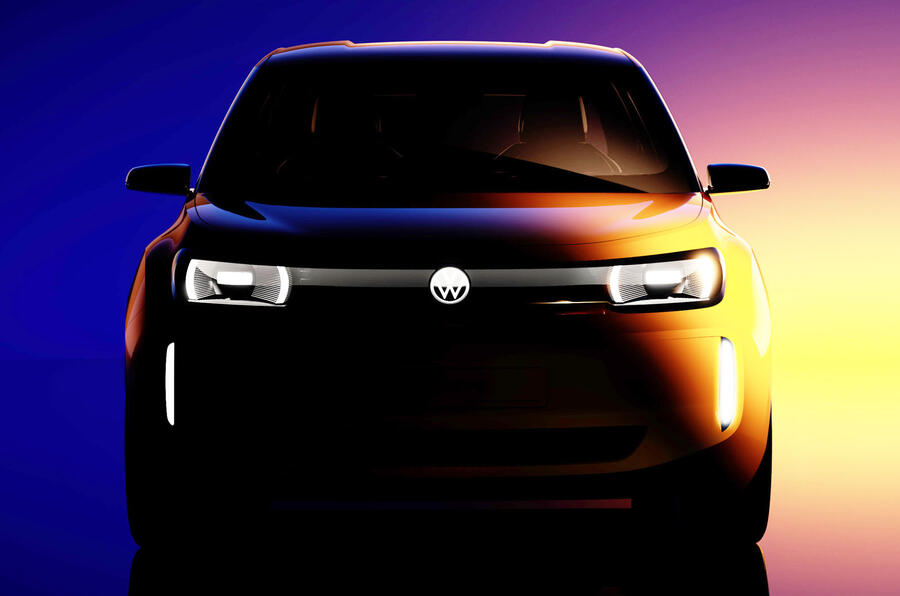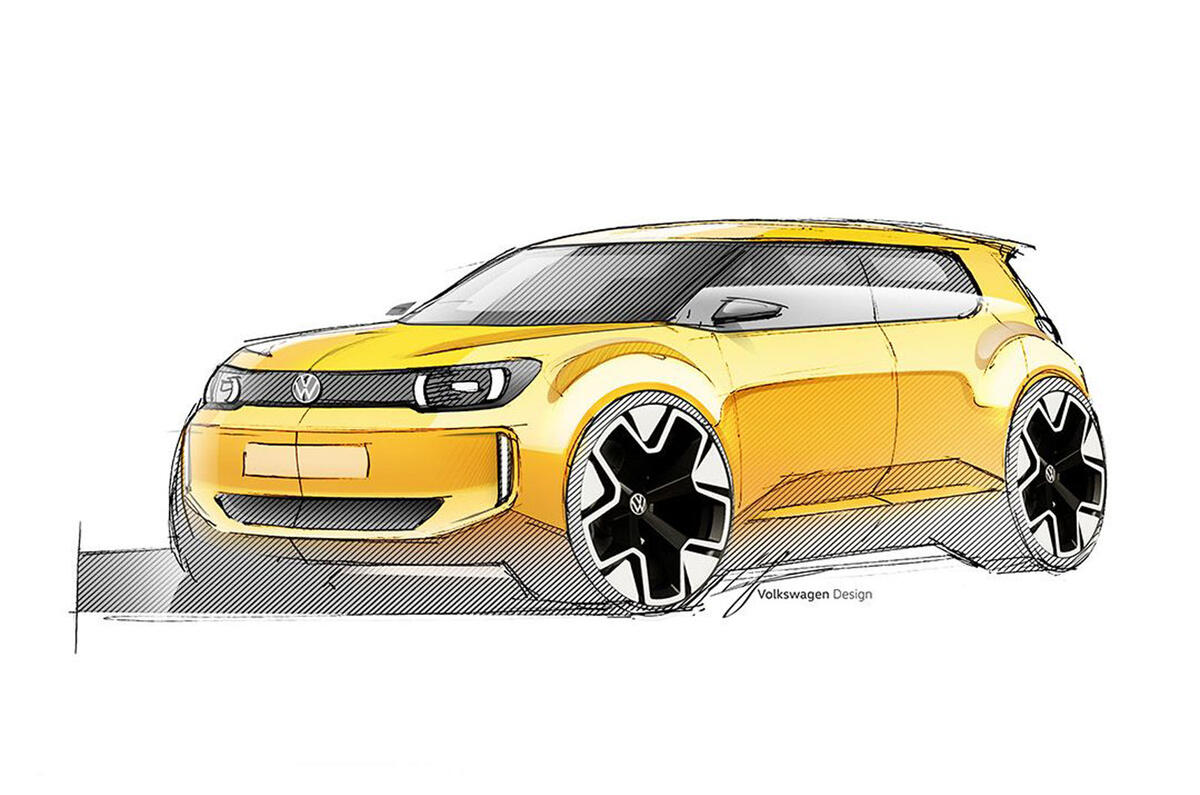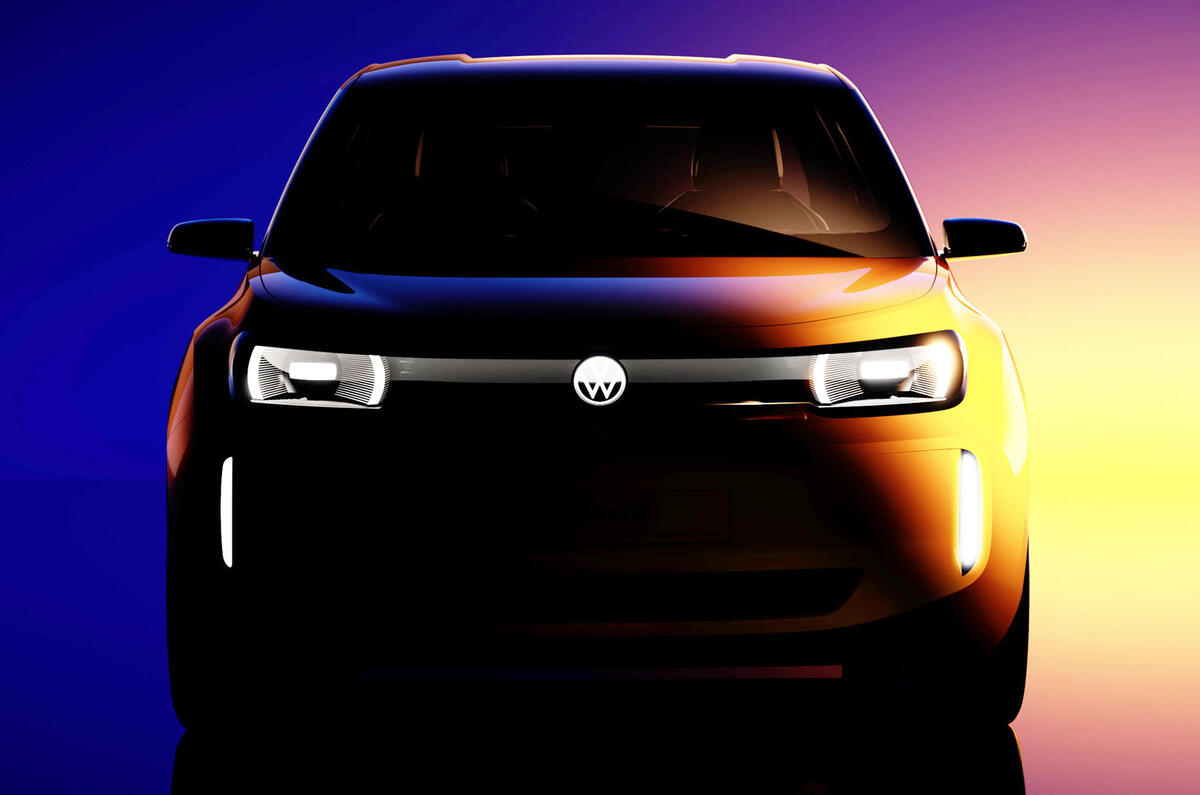Volkswagen has revealed the styling of the ID Every 1 concept that it will show in full next month, previewing a £17k electric car to succeed the Up.
The new entry-level model, expected to take the ID 1 name in production form, is due to arrive in 2027 with a base price of "about €20,000", said Volkswagen, making it "attractive for a wide variety of user groups".
It is expected to share its underpinnings with the Volkswagen Polo-sized ID 2 (a shortened 'Entry' version of the Volkswagen Group's modular MEB platform), but no technical details have yet been confirmed.
The new sketch released by the company shows the city car will have chunky, upright proportions and a distinctive new visage incorporating Volkswagen's new-look LED lighting signatures.
Volkswagen CEO Thomas Schäfer celebrated the new car's unveiling as a pivotal moment for the company: "An affordable, high-quality and profitable electric Volkswagen from Europe for Europe: that's the Champions League of automotive engineering!”
It isn't yet confirmed whether the ID 1 will be built in Spain by the Volkswagen Group, alongside the ID 2 and its 'ID 2 X' crossover sibling, the Skoda Epiq compact SUV and the more sporting Cupra Raval.

Volkswagen technical development boss Kai Grünitz has previously suggested the new entry model will be an obvious successor to the successful Up city car in its conception, and will share some design elements and attributes.
“The 'ID 1' will be close to the Up regarding the usage of that car," he said. "There aren't so many possibilities to design a small vehicle for cities in terms of what it looks like. It will be a car that fits into the Volkswagen brand design DNA and functionality DNA but at a lower price.”















Join the debate
Add your comment
Thought they were ditching the ID branding in favour of their heritage nameplates? Was expecting this to be branded as the Up!
I hope this emulates the Up! as much as possible - the best car VW produced for a long, long time. Good quality and so fit for purpose. I don't suppose VW ever made a profit on it though; it was too good for the price charged.